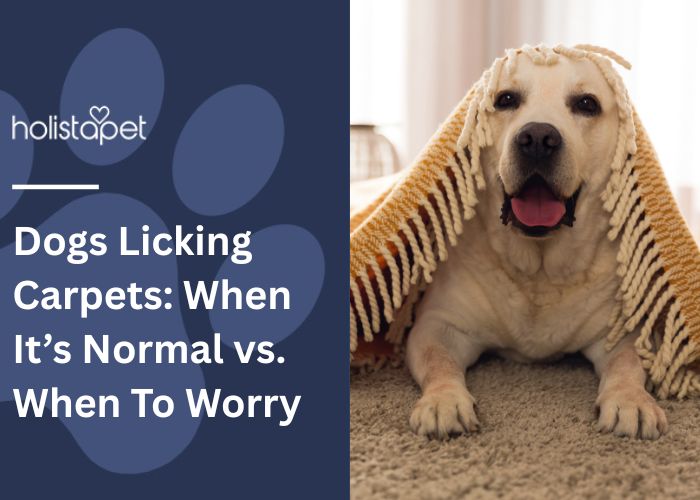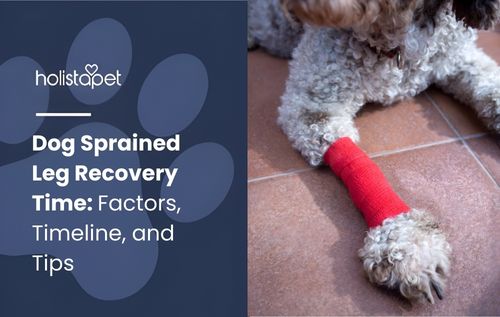Dogs hiding often signal that something feels off in the home or within the pet. Fear, stress, discomfort, or health issues drive domestic dogs to hide when these factors threaten their sense of safety. Research from the American Veterinary Medical Association shows that stress-related behaviors in dogs often manifest as withdrawal or hiding.
Understanding the reasons why your dog may be hiding helps uncover what the furry friend needs to feel secure again and return to a relaxed demeanor.
Why is My Dog Hiding?
Your dog hides because something triggers fear, anxiety, physical discomfort, or a need for safety. Loud noises, unfamiliar situations, changes in the house, or underlying health issues often cause hiding behavior.
Dogs use hiding as a coping mechanism when they feel overwhelmed, threatened, or unwell, even when no apparent reason seems obvious to humans.

Possible Reasons Why Dogs Hide
Dogs hide for different reasons, ranging from natural instinct to health concerns. Identifying the cause helps determine appropriate treatment and supports early detection of deeper issues.
1. For Safety
Many dogs seek a safe space when they feel threatened or overwhelmed. Loud noises, other pets, or unfamiliar situations often push domestic dogs under the bed or into enclosed spaces where they seek safety.
2. Stash Hiding
Some dogs display mischievous hoarding by hiding food, treats, or a toy. Working dogs and resource-protective breeds display this behavior more frequently due to natural instinct.
-
Food
-
Toy
- Treats
3. Searching Instinct
Hiding habits connect to a natural instinct shared by many dogs. Domesticated dogs still retain behaviors that drive them to seek tight spaces for rest and protection.
4. Abnormal Body Temperature
Dogs may hide to regulate body temperature. Enclosed spaces and quiet space areas help dogs enjoy warmth or cooling, especially smaller breeds.
5. Fear
Fear causes dogs to seek refuge fast. Loud noises, unfamiliar humans, or sudden changes in the house can trigger hiding behavior and cause a dog to feel anxious.
6. Old Age
Senior dogs may hide due to cognitive issues or confusion. Changes in a familiar environment affect how a dog feels and trigger withdrawal behavior.
7. Stress
Stress drives excessive hiding behavior. Routine changes, limited social interaction, or tension between pets trigger this response.

8. Sickness
Health issues drive dogs to hide without apparent reason. Watch for excessive licking, low energy, or behavioral changes that accompany hiding. A vet check supports early detection.
9. Injury
Pain or physical discomfort pushes dogs to find refuge in hiding spots. Even minor injuries drive dogs to seek rest away from humans.
10. Pregnancy
Pregnant dogs often hide as they prepare for rest and comfort. This behavior reflects a natural need for a quiet space and protection.
11. Anxiety
Anxiety is often linked to separation anxiety or fear of unfamiliar situations. Many dogs hide as a coping mechanism when they feel overwhelmed.
12. New Environment
A new house or new pet disrupts a dog's behavior. Dogs hide until they adjust and regain their sense of safety in the space.
Related Post: Dog Suddenly Wants to Sleep Alone [What It Could Mean]

How Do I Comfort My Hiding Dog?
Comforting a hiding dog starts with reducing stress and restoring a sense of safety. Simple adjustments often help dogs feel secure and encourage healthier behavior.
-
Create a safe space: Provide a quiet space with a bed where the dog can rest without disturbance.
-
Limit loud noises: Reduce sudden sounds that trigger fear or anxiety.
-
Maintain routine: Keep feeding, rest, and social interaction consistent in the house.
-
Offer reassurance: Stay calm and allow the pet to approach without pressure.
-
Use treats wisely: Encourage positive association without forcing the dog out of hiding.
-
Check for other signs: Watch for excessive licking, pain, or behavioral changes.
- Schedule a vet check: Consult a veterinarian if hiding persists or health issues seem likely.
Top Products to Soothe Hiding Dogs
Calming products can support dogs that hide due to stress, fear, or anxiety. These HolistaPet options focus on gentle, natural support that helps dogs feel safe without forcing behavior changes.
|
Product |
Best Use |
Form |
Ideal For |
|
CBD Dog Treats for Anxiety |
Stressful situations |
Crunchy treats |
Dogs hiding from loud noises |
|
CBD Calming Chews |
Ongoing anxiety |
Soft chews |
Sensitive or anxious dogs |
|
CBD Oil for Dogs |
Flexible support |
Oil drops |
Dogs that avoid treats |
|
CBD Wellness Treats |
Daily balance |
Soft treats |
Routine calm support |

HolistaPet CBD Dog Treats for Anxiety
These crunchy treats support calm behavior in dogs that hide during loud noises or unfamiliar situations. The format works well for dogs that respond positively to food rewards.
Key ingredients:
- Broad spectrum CBD
- Chamomile
- L Theanine
How it works:
The formula supports emotional balance and relaxation, helping dogs feel calmer during stressful moments.
Application method:
- Give as a treat
- Offer before stressful events
- Include in a daily routine
Benefits:
- Encourages a relaxed demeanor
- Supports calm behavior
- Easy to give
HolistaPet CBD Calming Chews for Dogs
These soft chews suit dogs that feel overwhelmed and prefer a gentler texture. The product supports dogs that hide often due to repeated stress triggers.
Key ingredients:
- Broad spectrum CBD
- Chamomile
- L Tryptophan
How it works:
The chew delivers calming compounds that support balanced behavior during anxious moments.
Application method:
- Offer as a chew
- Adjust serving by size
- Use during known triggers
Benefits:
- Supports emotional balance
- Helps manage anxious behavior
- Soft and palatable
HolistaPet CBD Oil for Dogs
This oil offers flexible support for dogs that hide frequently or resist treats. Adjustable serving sizes suit many dogs and breeds.
Key ingredients:
- Broad spectrum CBD
- Hemp seed oil
How it works:
CBD supports natural systems that influence stress response and overall balance.
Application method:
- Add to food
- Place directly in the mouth
- Mix with a treat
Benefits:
- Flexible use
- Supports daily calm
- Suitable for many dogs
HolistaPet CBD Wellness Treats for Dogs
These treats support everyday wellness while encouraging steady calm behavior throughout the day.
Key ingredients:
- Broad spectrum CBD
- Blueberries
- Hemp seed powder
How it works:
The blend promotes balance and comfort as part of a daily routine.
Application method:
- Use as daily treats
- Offer during training
- Reward calm behavior
Benefits:
- Supports daily wellness
- Encourages calm habits
- Tasty for many dogs
Related: How to Socialize an Aggressive Dog: #1 Guide with Proven Tips and Tricks

When Do I Take My Hiding Dog to a Vet?
Take a hiding dog to a vet when the behavior appears suddenly, lasts more than a few days, or comes with other signs like pain, excessive licking, loss of appetite, or changes in behavior.
A veterinarian should also evaluate senior dogs, pets with known health issues, or any dog that hides without an apparent reason, since hiding may signal physical discomfort or a deeper issue that needs early detection.
Final Thoughts
Dog hiding often reflects fear, stress, discomfort, or health concerns that need attention. Recognizing the cause early, offering comfort, and seeking vet guidance when needed helps dogs feel safe, supported, and ready to return to normal behavior.

Frequently Asked Questions
Can a dog hide simply because it wants alone time?
Yes. Many dogs enjoy short periods of rest in quiet or enclosed spaces, especially after social interaction or play. This type of hiding comes with a relaxed demeanor and no other signs of distress.
Do certain dog breeds hide more than others?
Yes. Smaller breeds and dogs bred for burrowing or guarding behaviors tend to seek tight spaces more often due to natural instinct and comfort preferences.
Is hiding normal when a dog moves to a new house?
Yes. A new house can overwhelm a dog at first. Hiding allows dogs to observe and adjust until the environment feels familiar and safe.
Can hiding happen after introducing a new pet?
Yes. A new pet can disrupt routine and social balance, causing a dog to hide until it feels secure again around other animals.
Should a dog be forced out of a hiding spot?
No. Forcing a dog out can increase fear and anxiety. Allow the dog to leave the hiding spot on its own when it feels safe.
How long is too long for a dog to hide?
Hiding that continues for several days or becomes excessive usually signals a deeper issue that requires attention or a vet check.
Does nighttime hiding mean something different?
Sometimes. Dogs may hide at night due to unfamiliar sounds, reduced visibility, or feeling vulnerable when the house becomes quiet.
Can changes in routine cause hiding?
Yes. Shifts in feeding times, work schedules, or daily activities can make dogs feel unsettled and lead to hiding behavior.


 CBD Oil for Dogs - Fast Acting
CBD Oil for Dogs - Fast Acting
 Chicken Flavored CBD Oil For Dogs - Easy Dose
Chicken Flavored CBD Oil For Dogs - Easy Dose
 Salmon Flavored CBD Oil For Dogs - Highly Rated
Salmon Flavored CBD Oil For Dogs - Highly Rated
 CBG Oil for Dogs and Cats - Loved by Thousands
CBG Oil for Dogs and Cats - Loved by Thousands





2 comments
Debra Dygon
My 4 year old Golden Doodle hides under the bed whenever I ask him if he has to go outside to go pee or poopy. I live in townhouse only on the weekends. And I walk him outside 3-4 times a day on the weekends We stay at my boyfriend’s on level house from Monday to Friday and he scratches the door to go outside. His favorite person is my boyfriend and he thinks Enzo misses him on the weekends when he’s with only me. I’m worried about why he always hides under the bed when I’m just taking him around the block for a 10 minute walk.
Sal
My dog used to a reactive dog. He would look out the window and bark at everything that moved. For the past two days he has been hiding. I have coke him to go outside.
Leave a comment
All comments are moderated before being published.
This site is protected by hCaptcha and the hCaptcha Privacy Policy and Terms of Service apply.